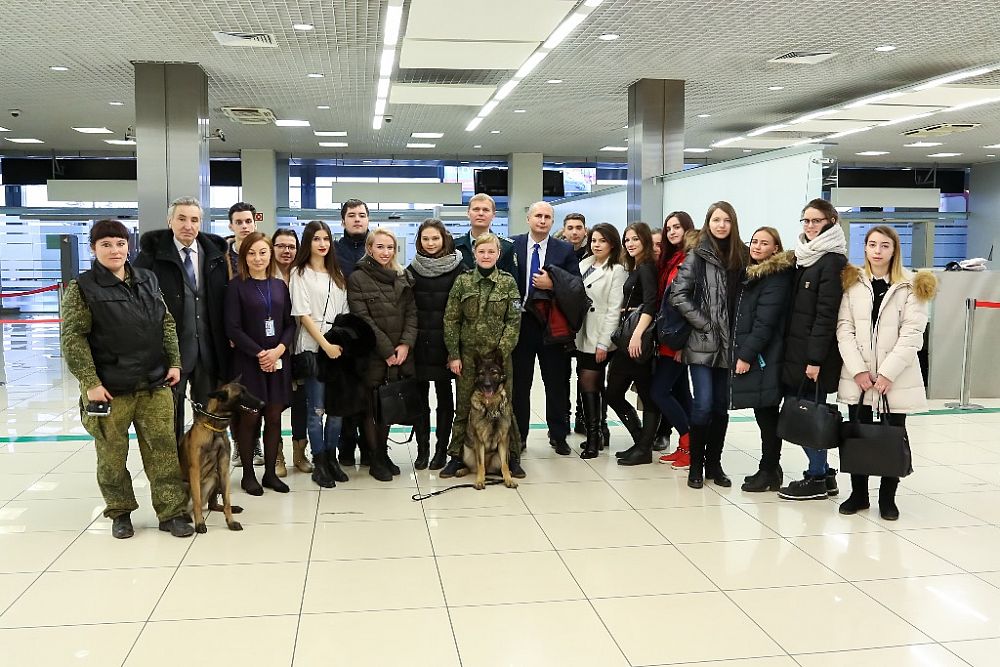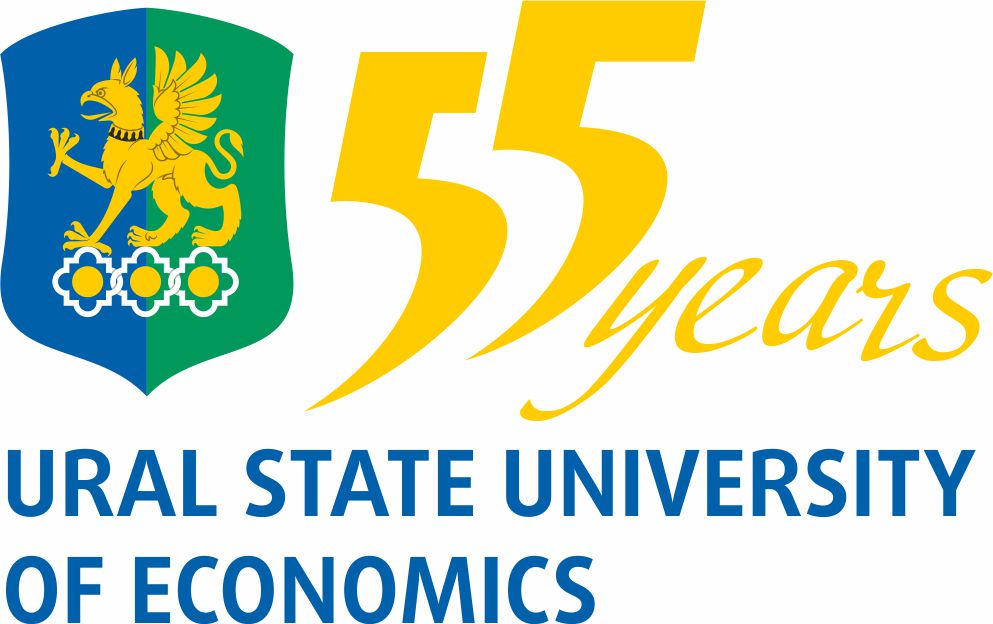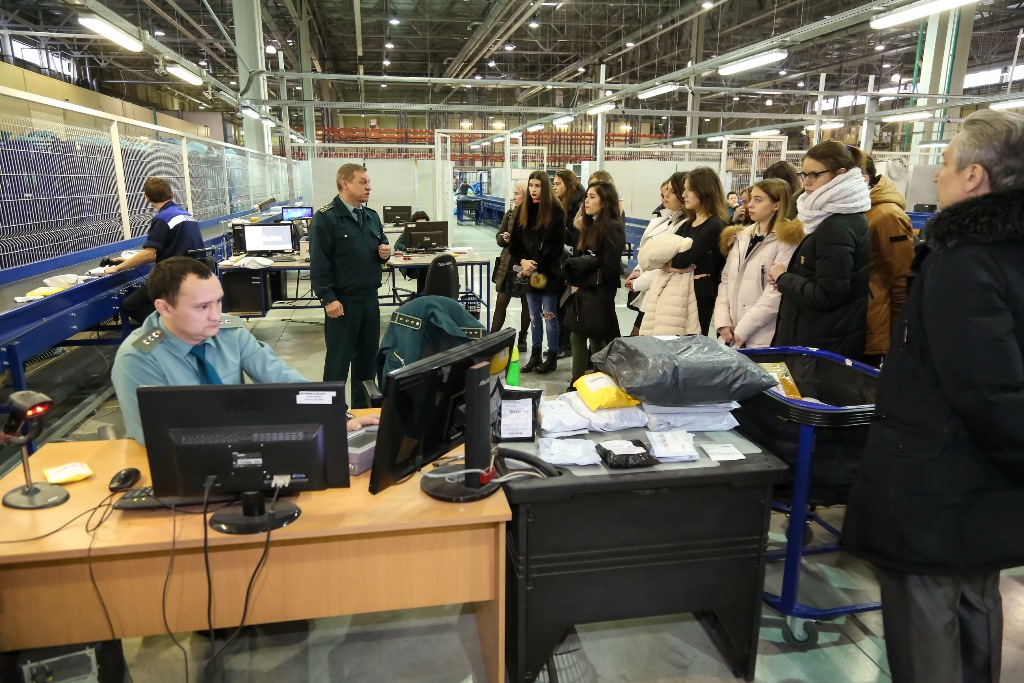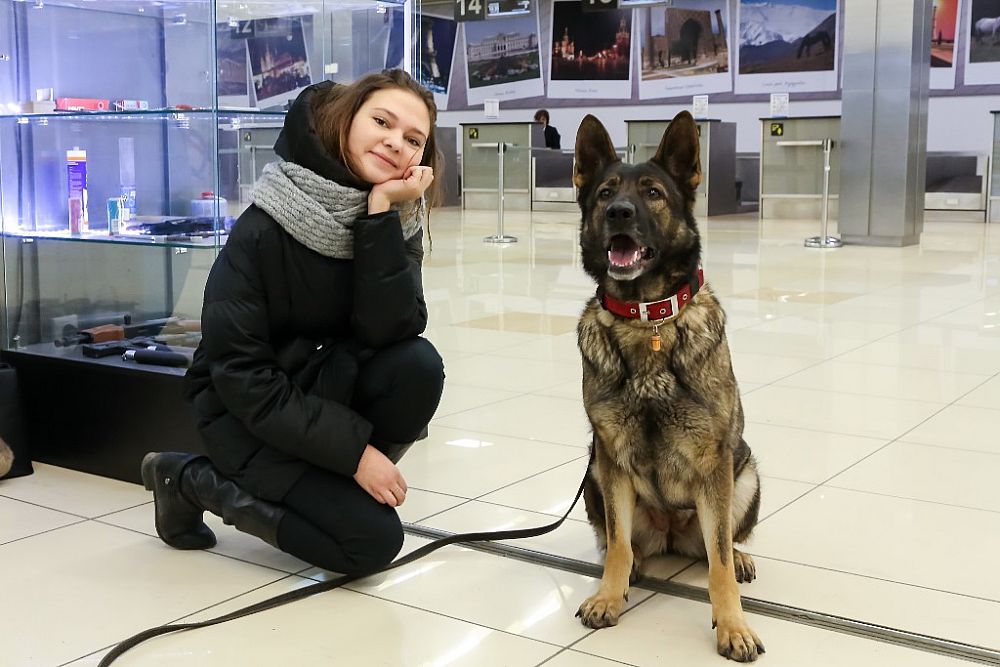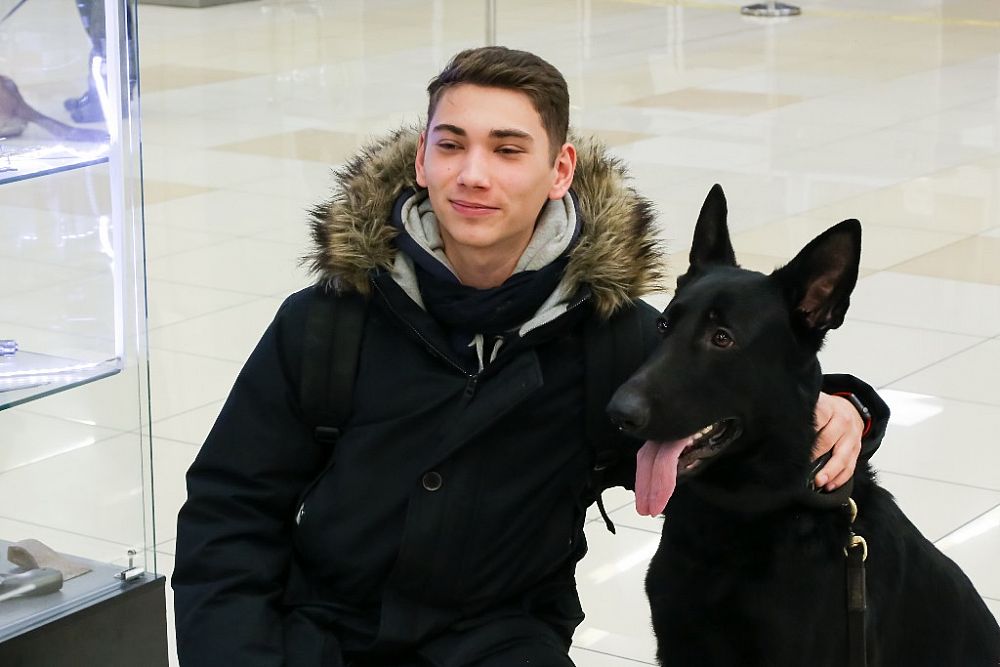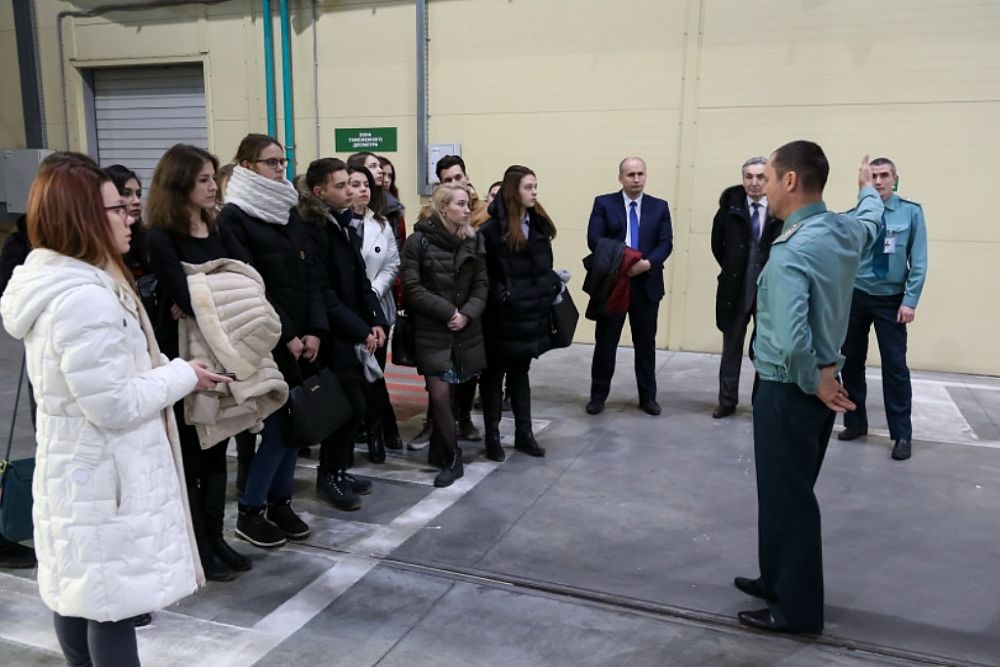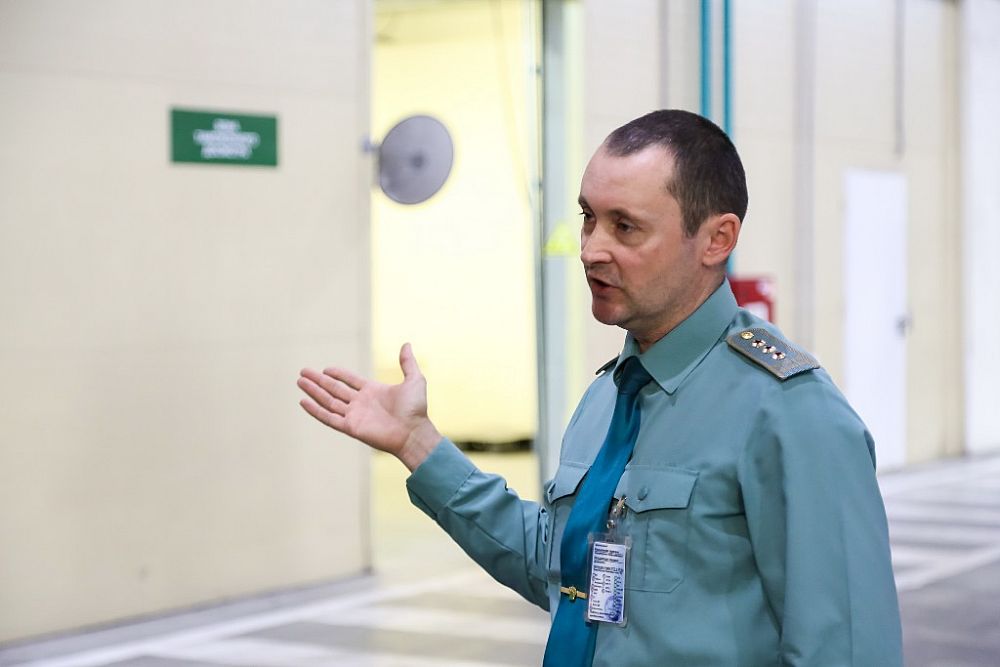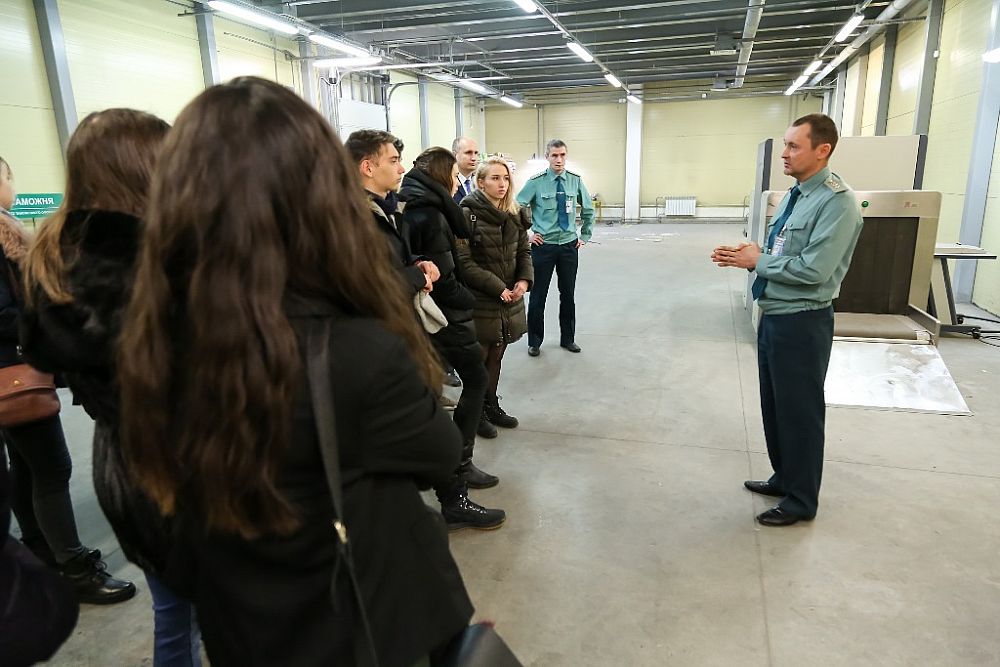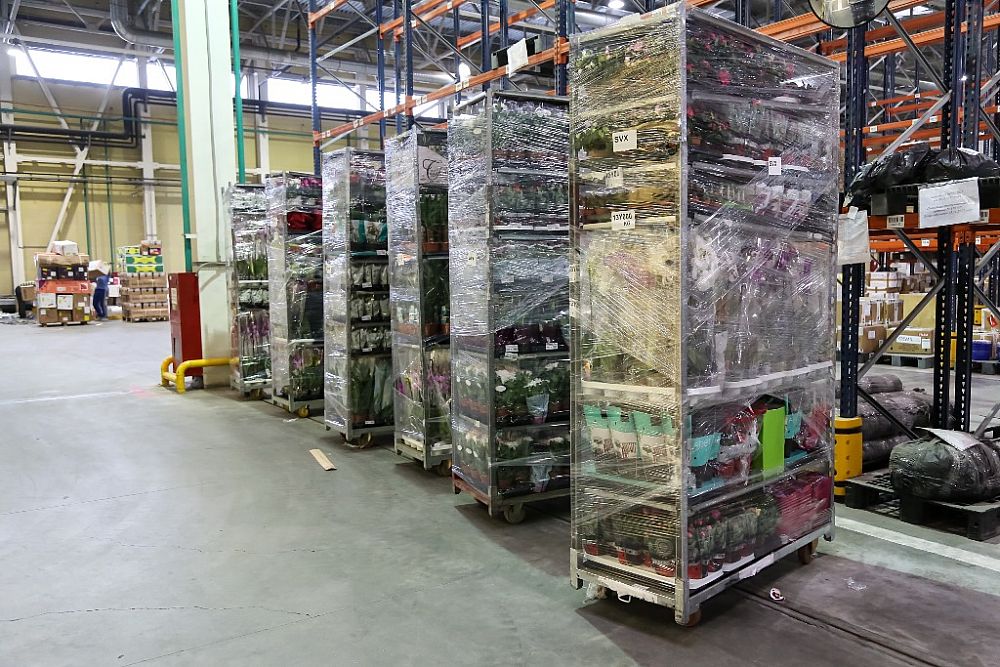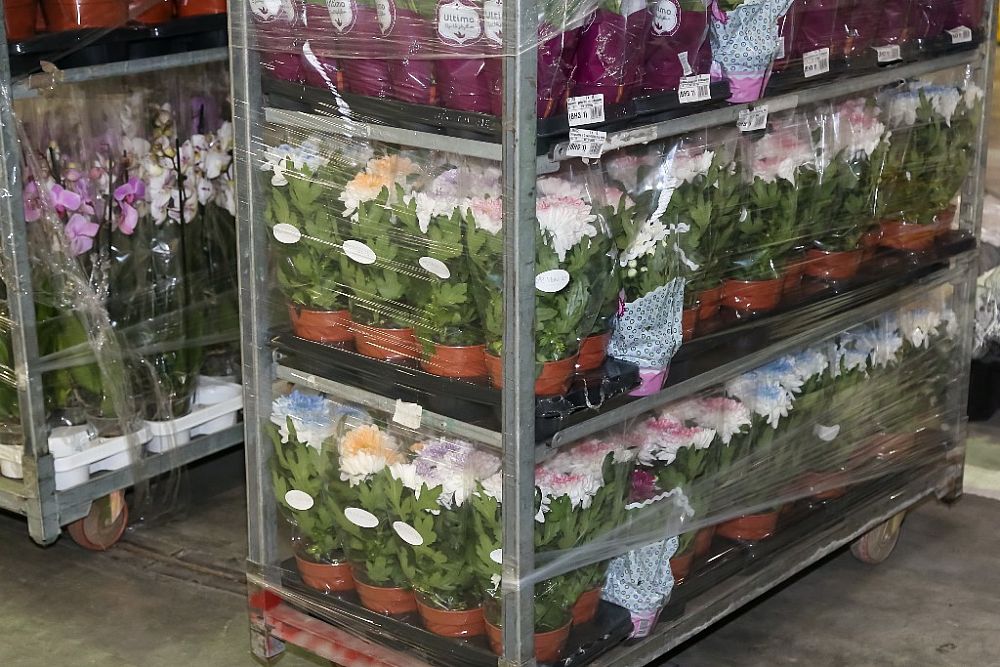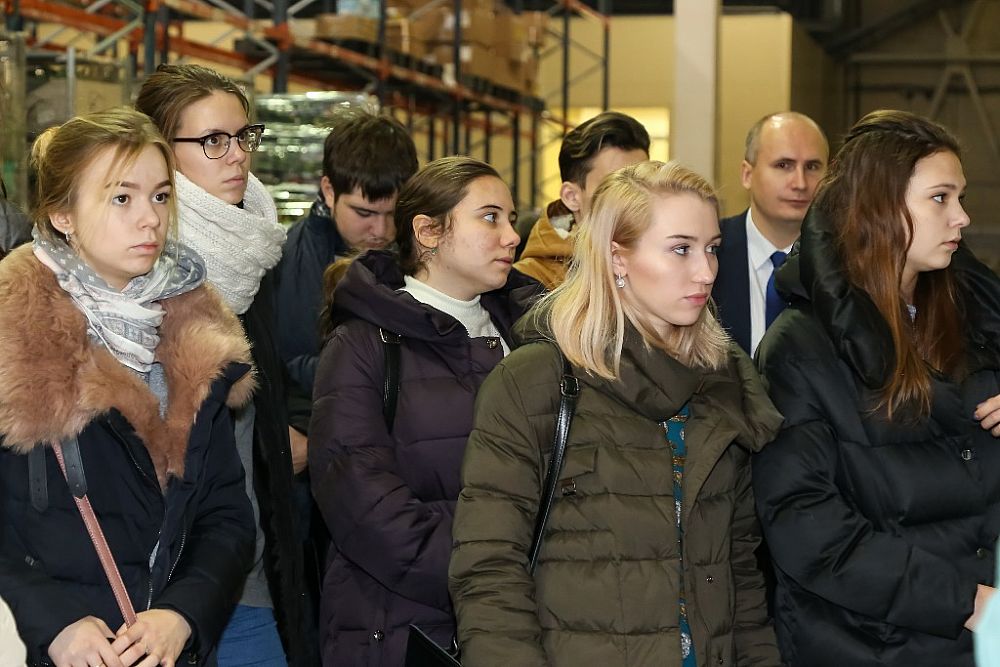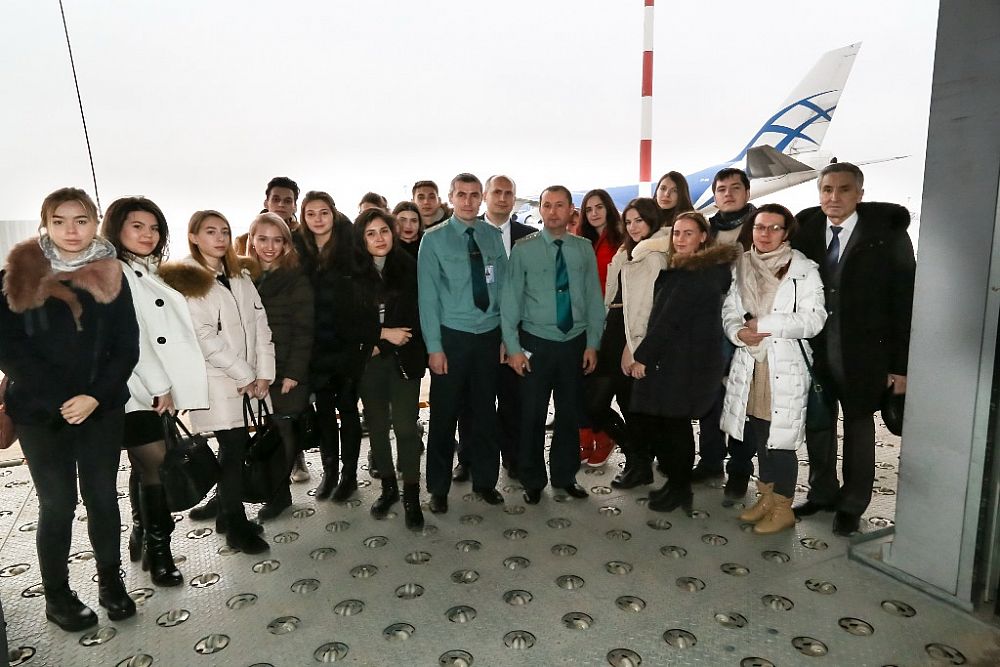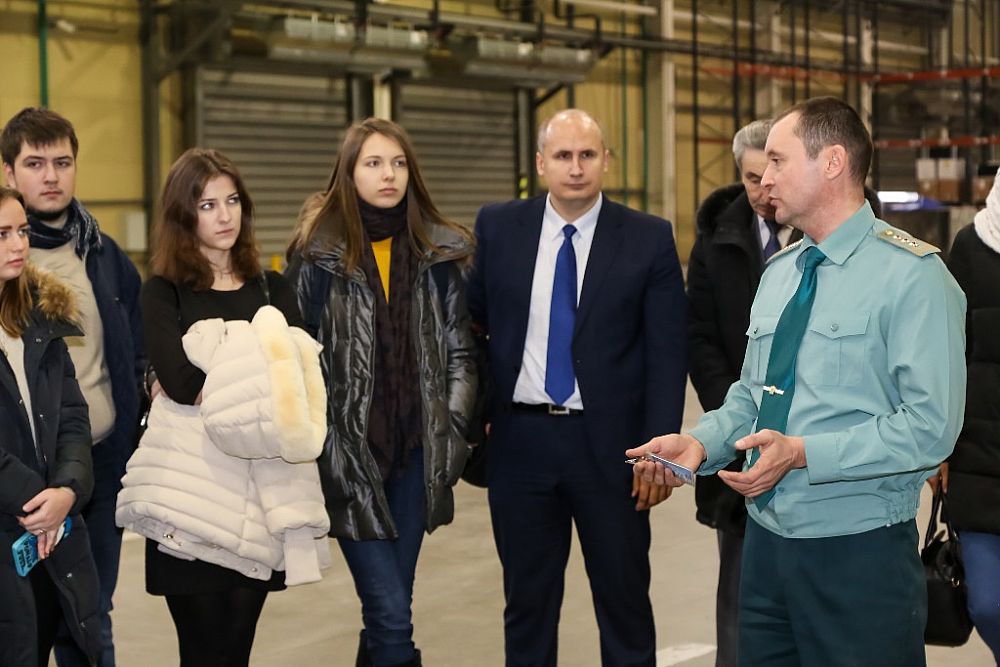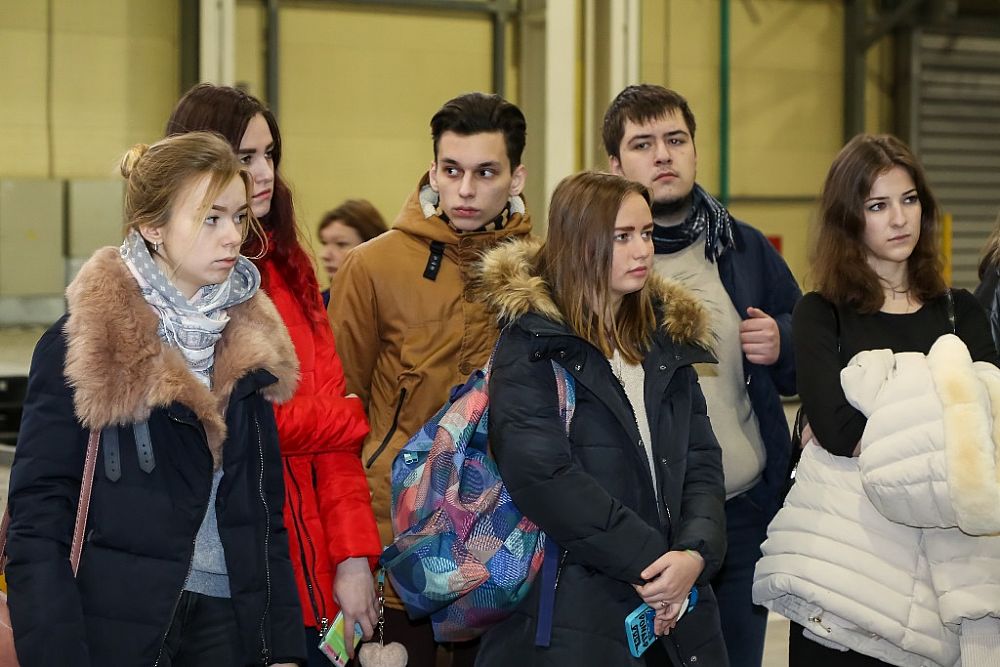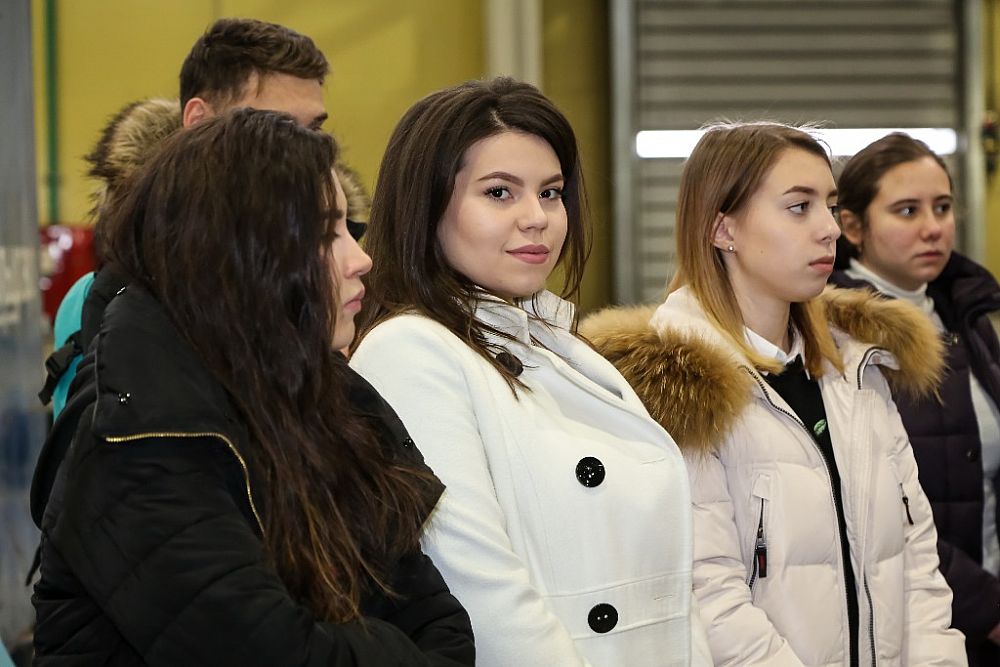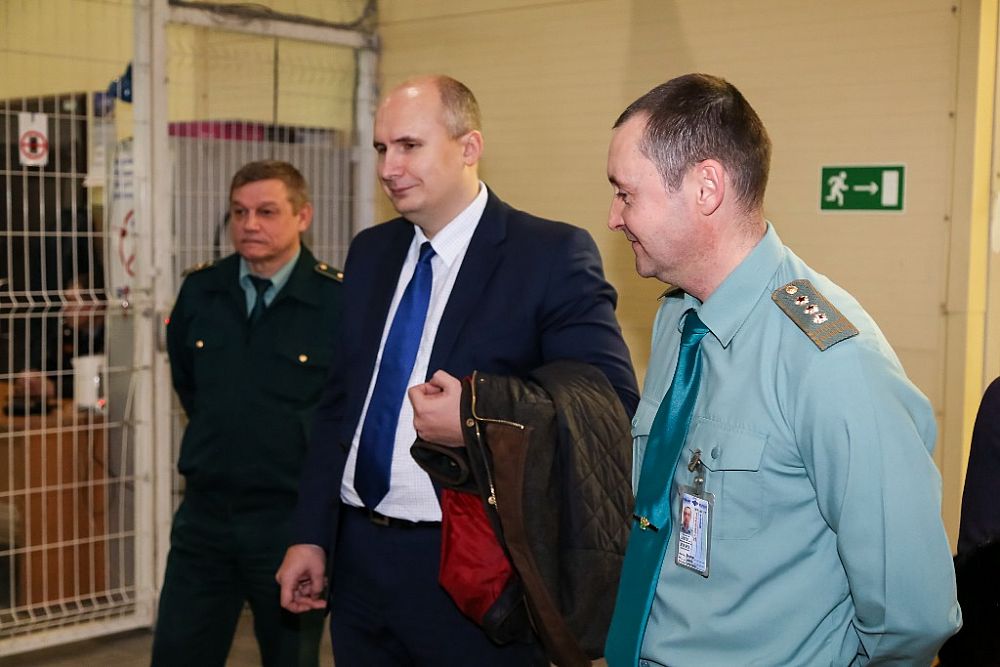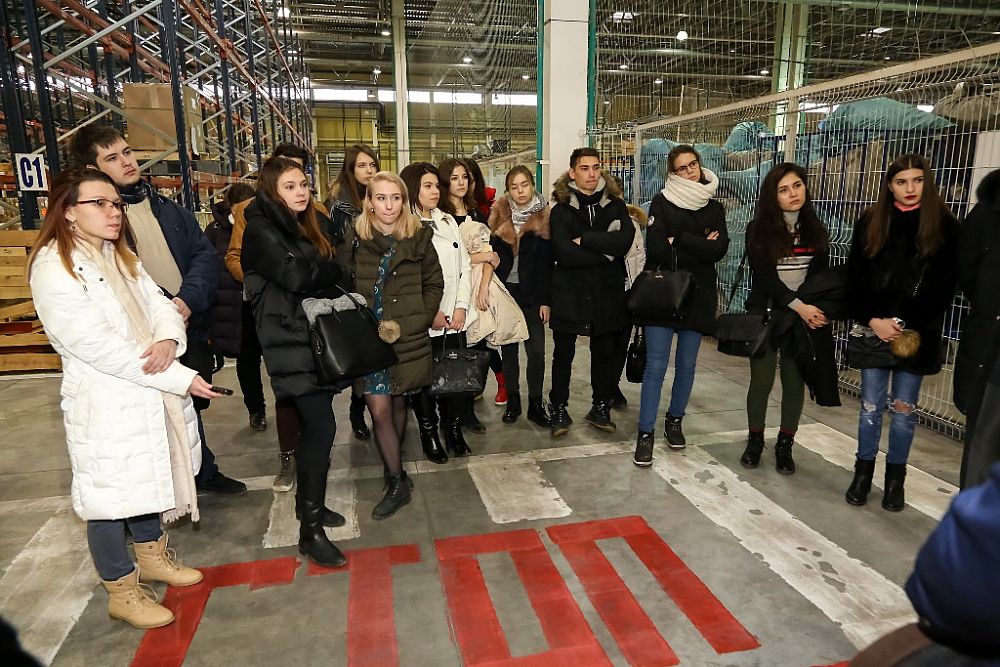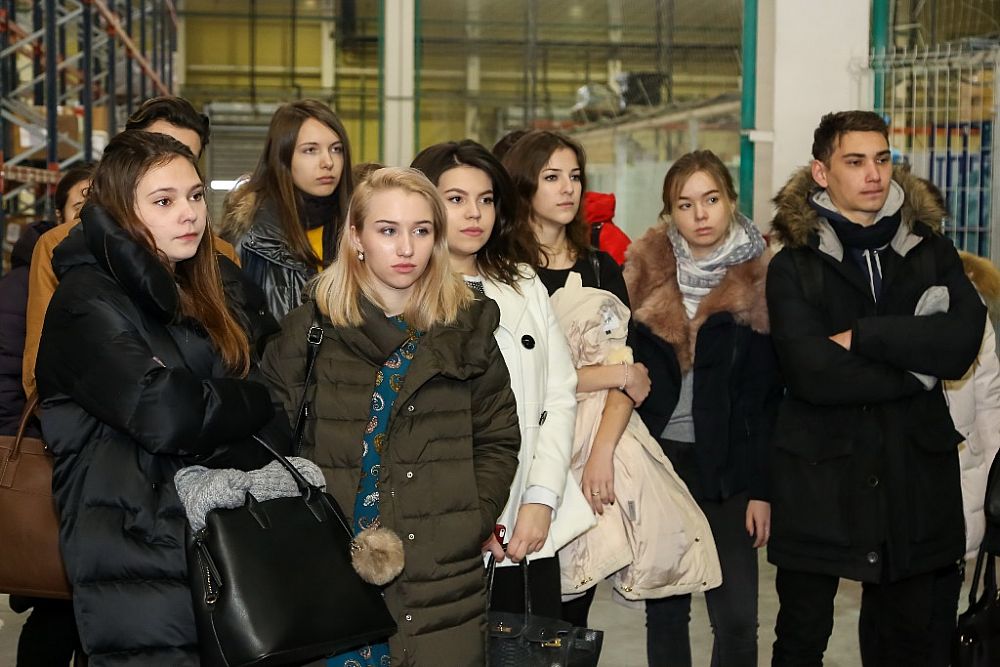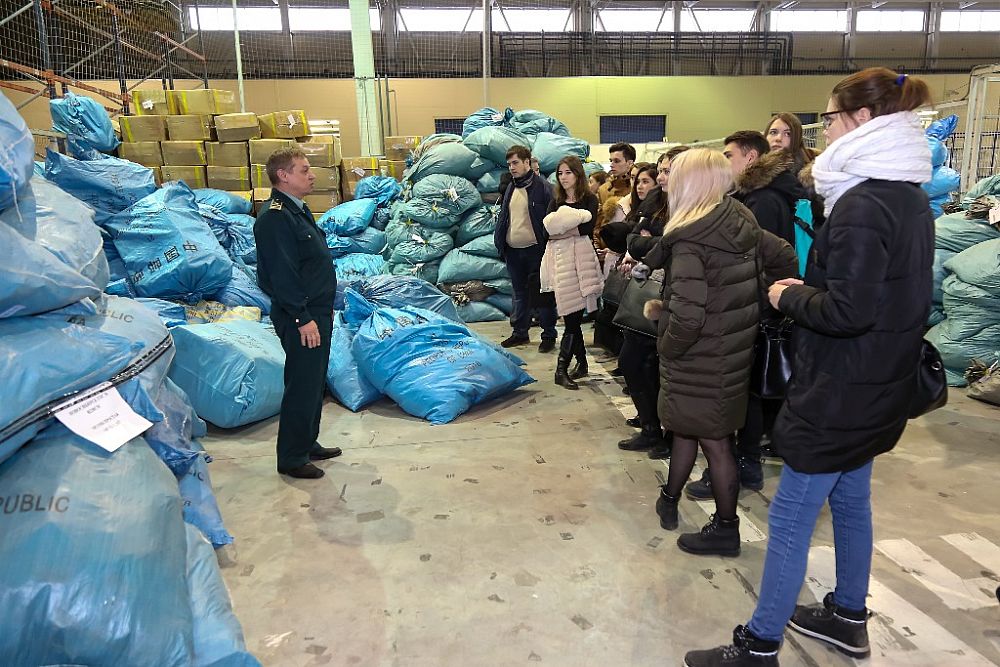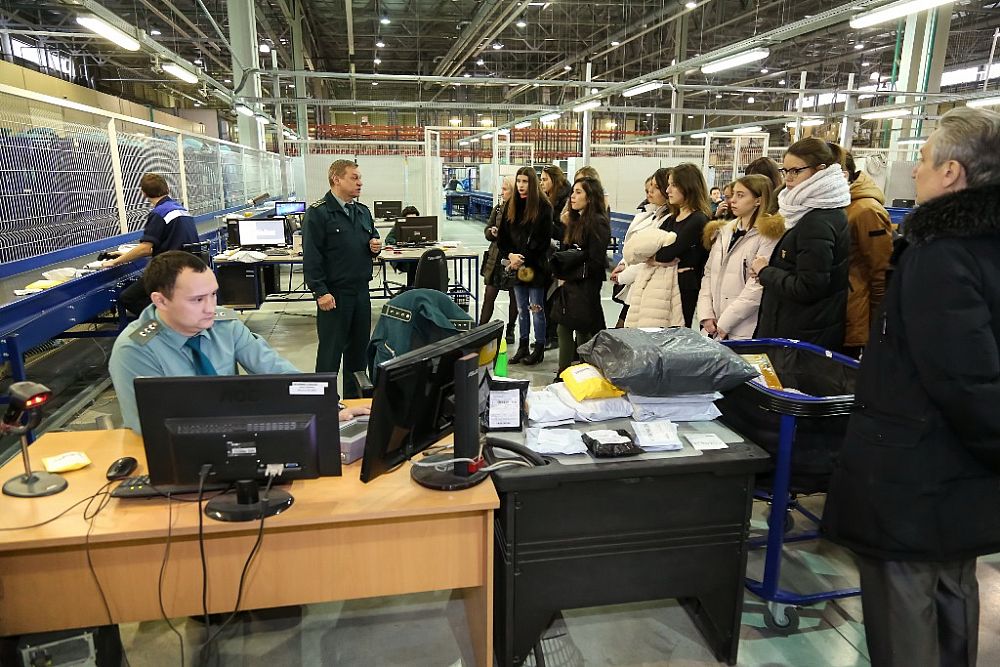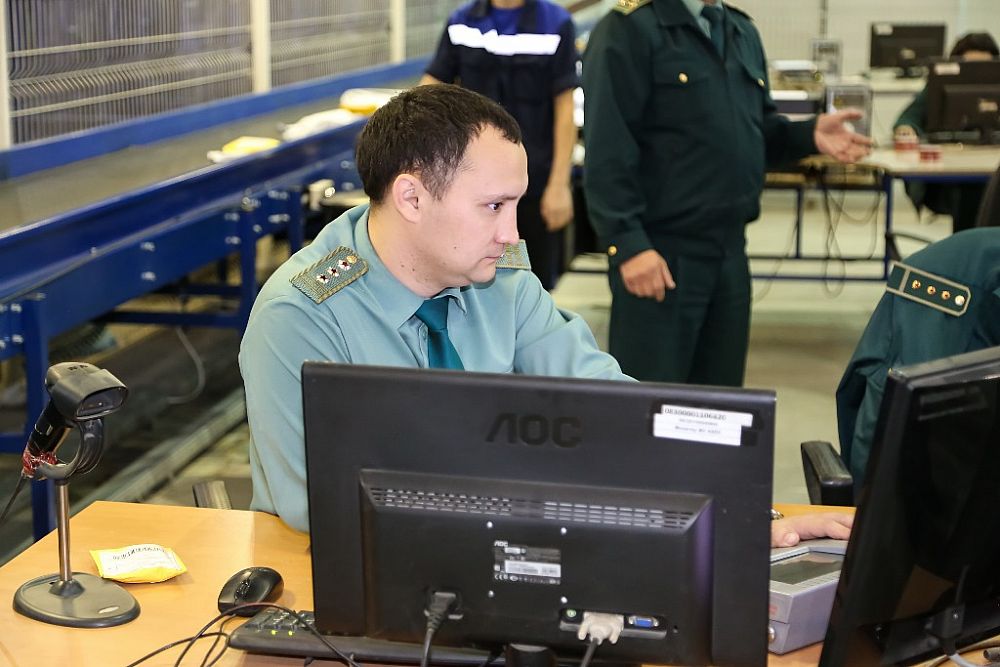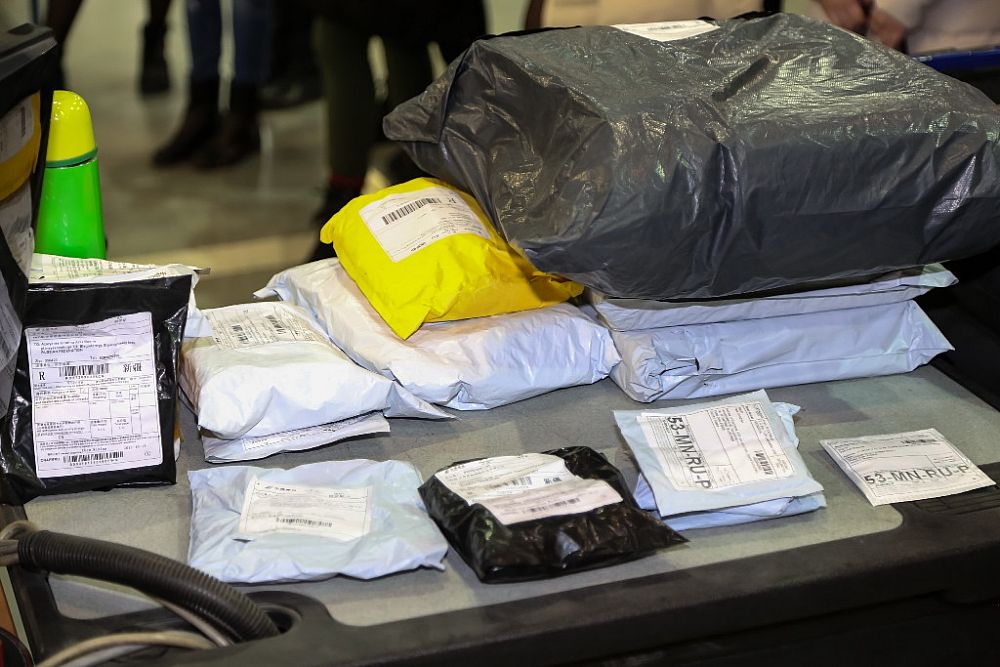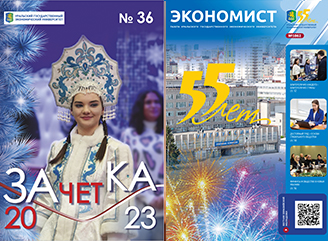 See other releases of corporate mass media
See other releases of corporate mass media
USUE Students saw Koltsovo customs from inside
Where does the parcel come, how to find a forbidden cargo and what does the dog do when it finds a narcotic substance? First-year students of the USUE department of International Business learned all these visiting Koltsovo customs on November 14.
"We organize study tours of our airport for university students of Yekaterinburg, tell them what our employees are busy with, instruct them how to behave when crossing the border, what one can carry with him/her, and what it is forbidden," Dmitry Shishkin, head of the customs passenger post at Koltsovo Airport said.
The excursion started from the departure hall, where the students were able to cross the customs border. Here, every person passes through customs, border and aviation security control. In Koltsovo, there is a system of the double corridor: green and red. "Walking through the green corridor, passengers show that they do not carry with them any prohibited goods. Citizens passing through the red corridor have to submit a customs declaration. The border of customs control can be crossed only with permission. Its violation will entail administrative liability," Dmitry Shishkin said.
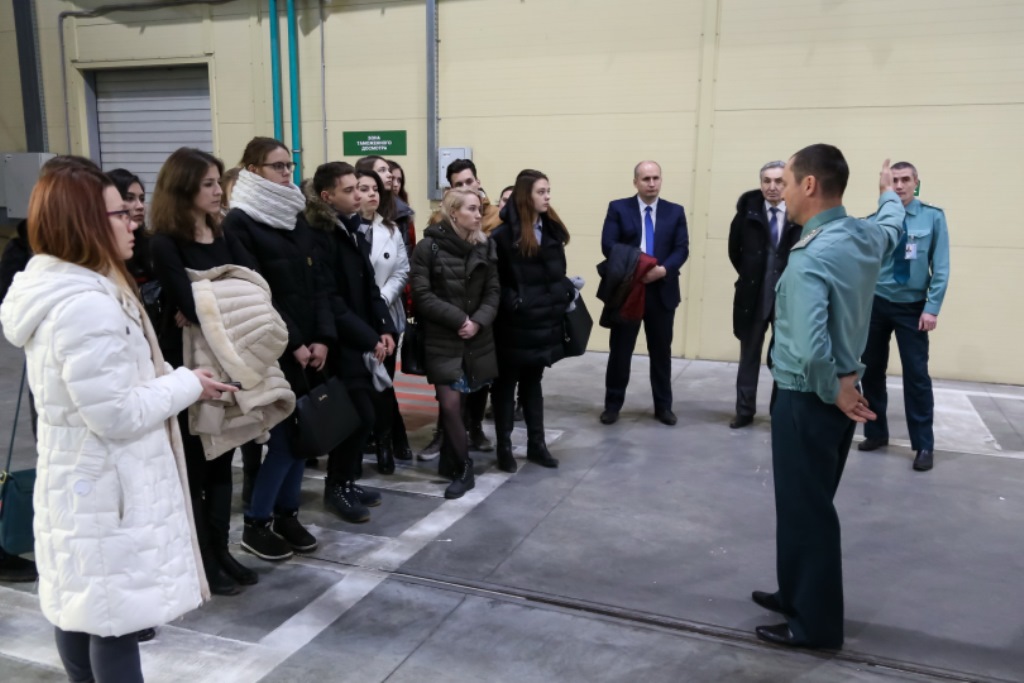
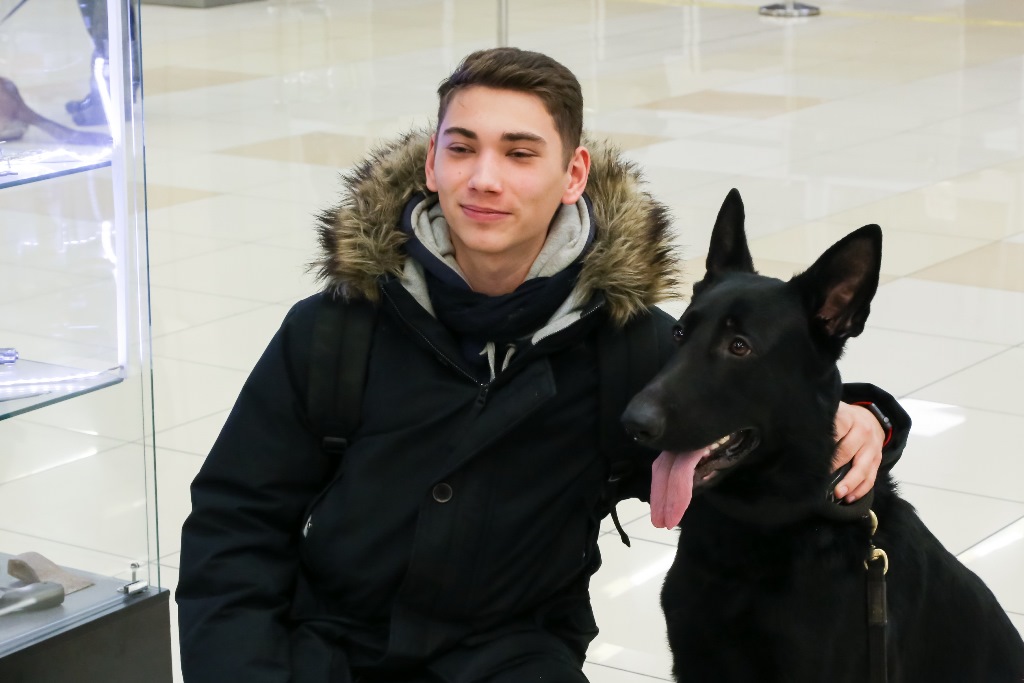
Crossing the border of customs control, students passed through a radiation background detector. This is done in order to prevent the illegal carrying of radioactive substances. Next, the students put things on the conveyor and watched the contents of their bags and backpacks reflected on the introscope monitor. For clarity, Dmitry Shishkin put a knife and money in his bag to demonstrate how these objects are reflected on the monitor. "An introscope is necessary to inspect carry-on luggage and baggage. The blue color on the monitor marks a metal, so it shows the prohibited items, which lie in my bag,” he said.
After scanning the contents of the bags, the customs inspector may interview a passenger, if his behavior seemed strange, and can call for a dog handler with a dog. "Our dogs can smell not only drugs but also a large amount of money. All substances used in training are not natural. They will not harm the animal," the dog handlers noted.
The dog handlers put some currency and drugs in students' bags and pockets and showed how the process of searching for banned substances was going on. The dogs successfully coped with their work.
After that, the students visited the cargo post of the airport and learned the procedure of cargo registration and its storage. "We meet all aircraft without exception and register the crew and cargo. Thereafter, the goods are placed in temporary storage up to customs clearance," Sergei Borovik, head of the department of customs clearance and customs control of the Koltsovo customs said.
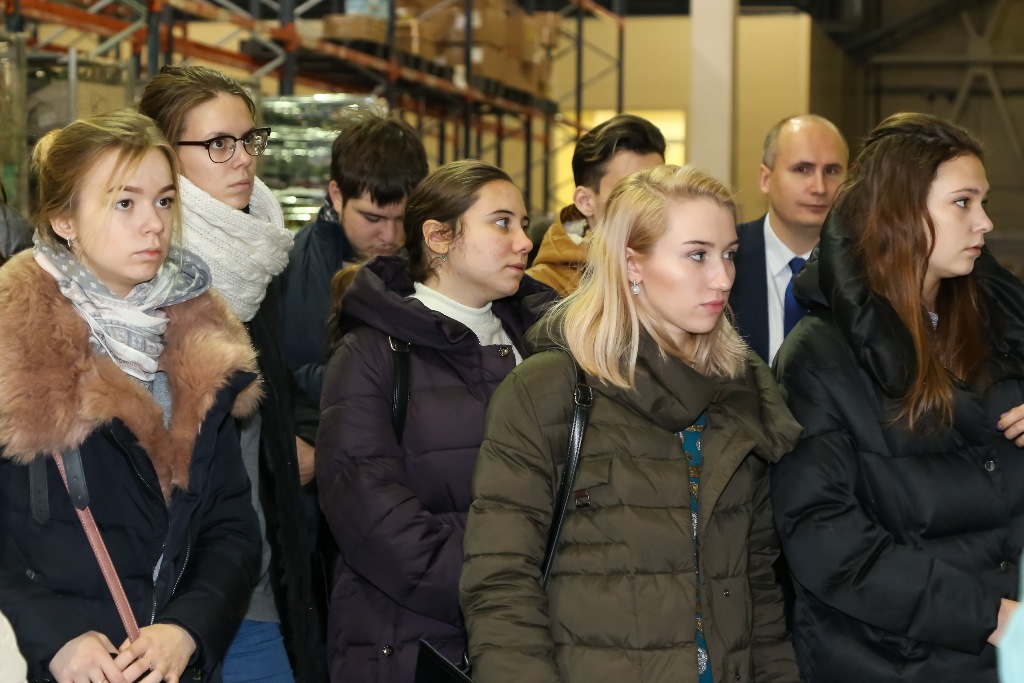
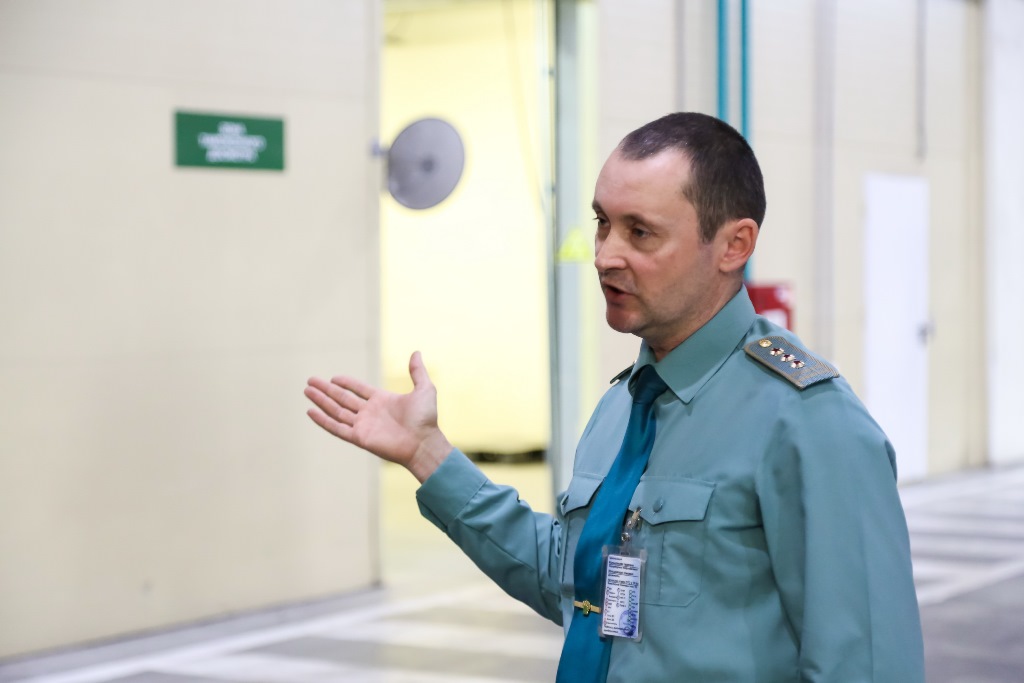
Here there are two departments of customs control: one is engaged in processing declarations for goods and cargo of individuals, the second controls the activities of temporary storage warehouses and conducts basic customs operations.
The students saw how the employees take cargo from the aircraft and where it is later stored. Inspectors check the goods with special equipment and weigh them. "The cargo distributed according to its volume, weight, and storage conditions. If some goods can harm others, they are put in a separate room. There is also a repository of valuable cargo. There are expensive things and loads of diplomatic consulates of our city," Sergei Borovik explained.
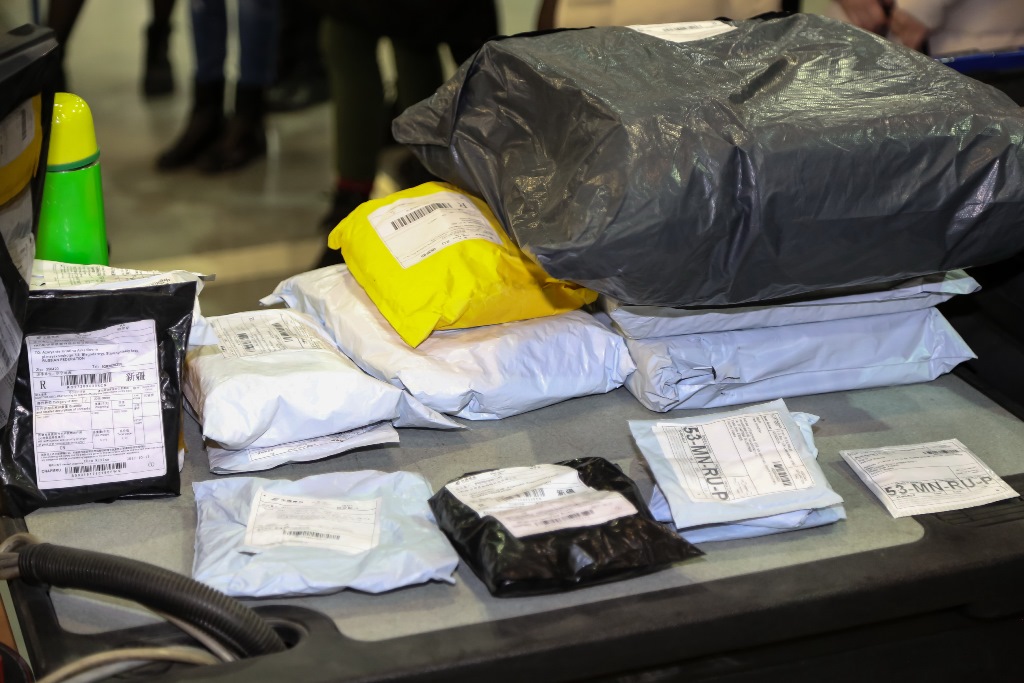
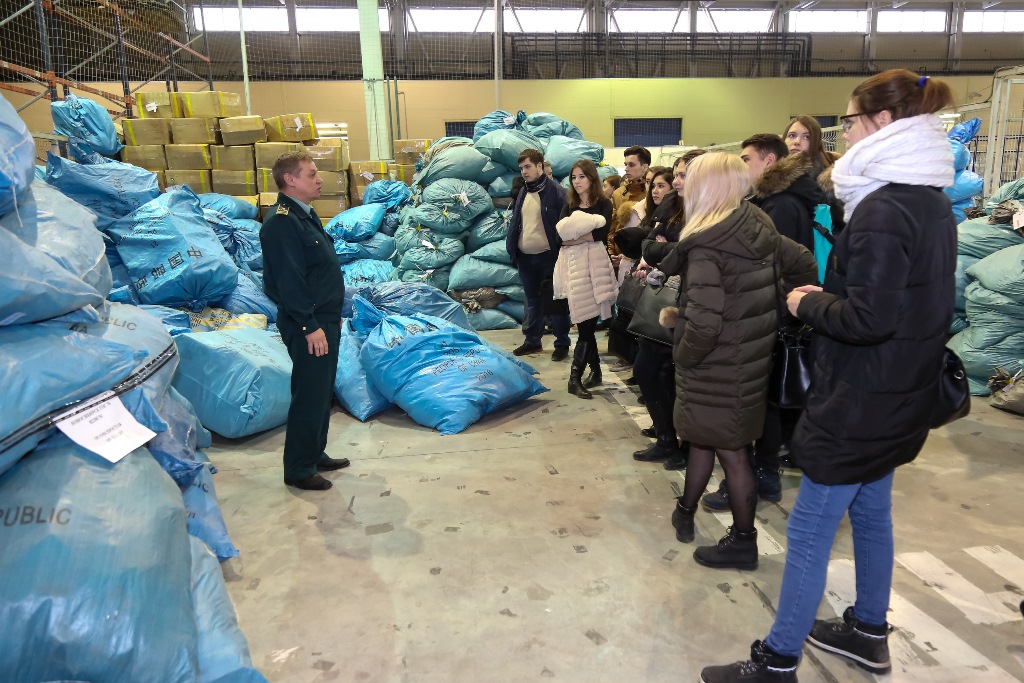
Then the students went to the post office, where they saw the whole process of work from receiving the items to completing the work of customs control with parcels. The head of the Koltsovo Airport customs Alexander Simonov told what goods are prohibited for international mail and showed how the inspection and sorting of parcels are done. "Daily, we inspect approximately 130-150 thousand items. We are working around the clock," he said.
Students also learned how they distinguish valuable cultural artifacts from souvenirs, and how the transportation of a large number of things for personal use differs from a commercial batch.
Photo gallery:
